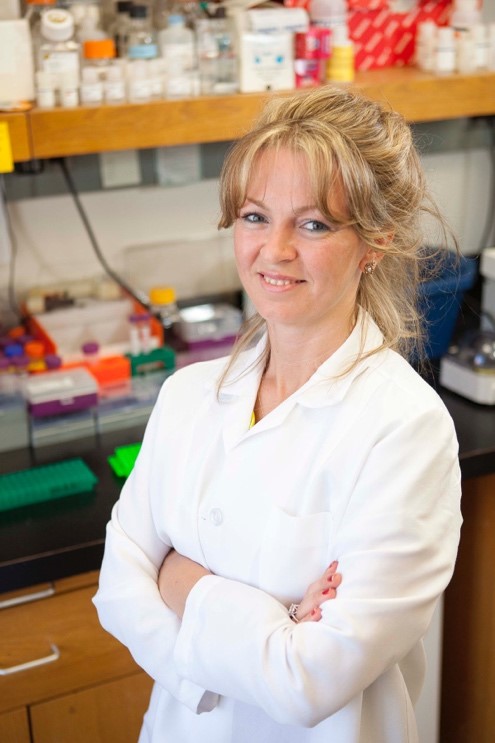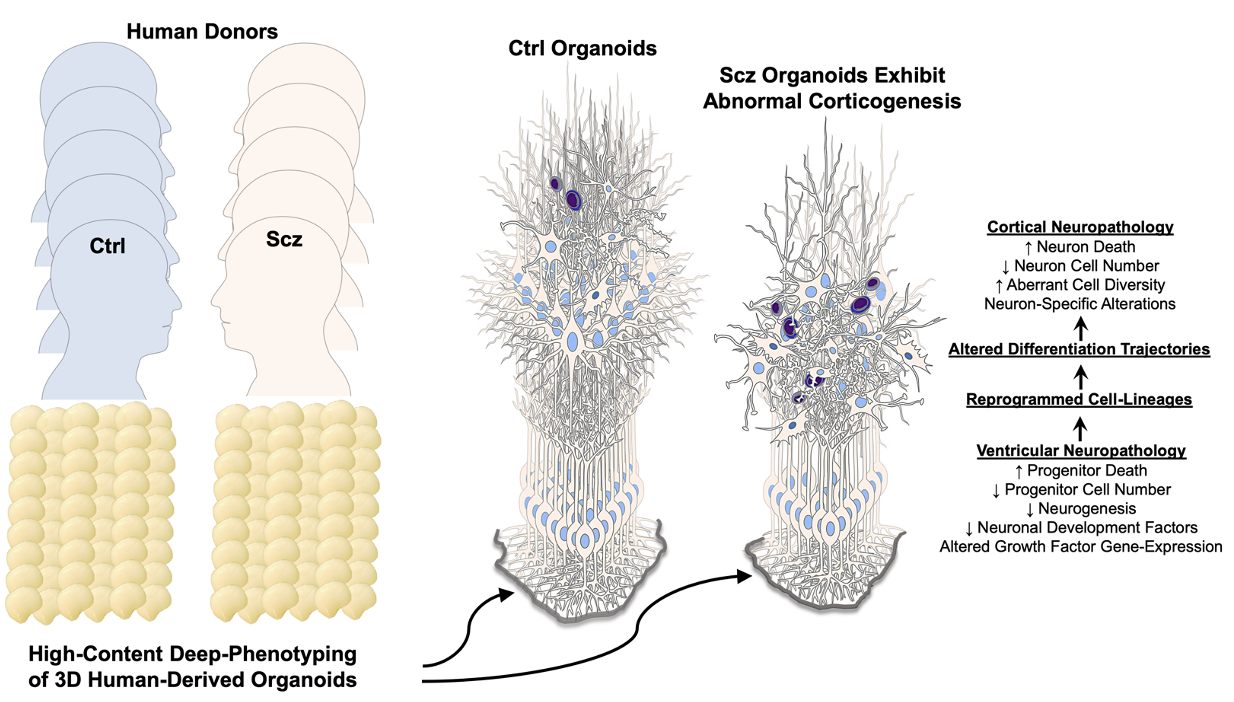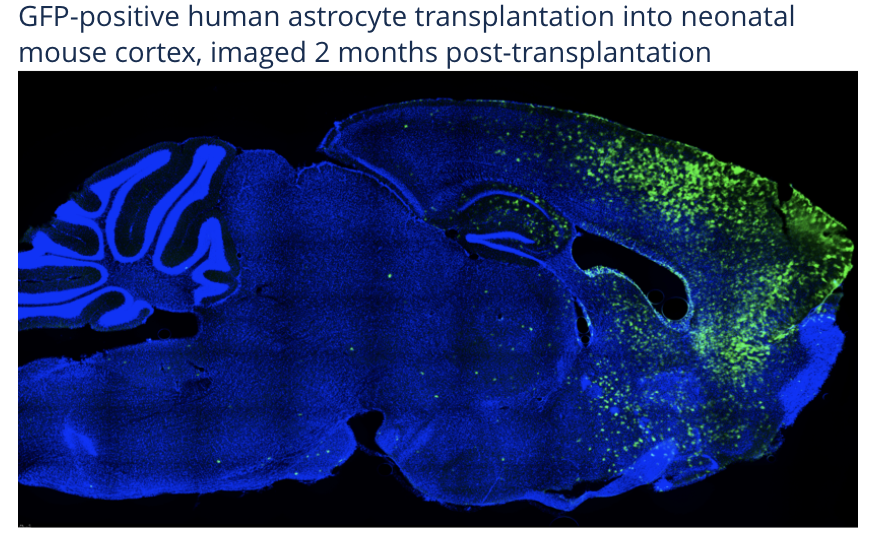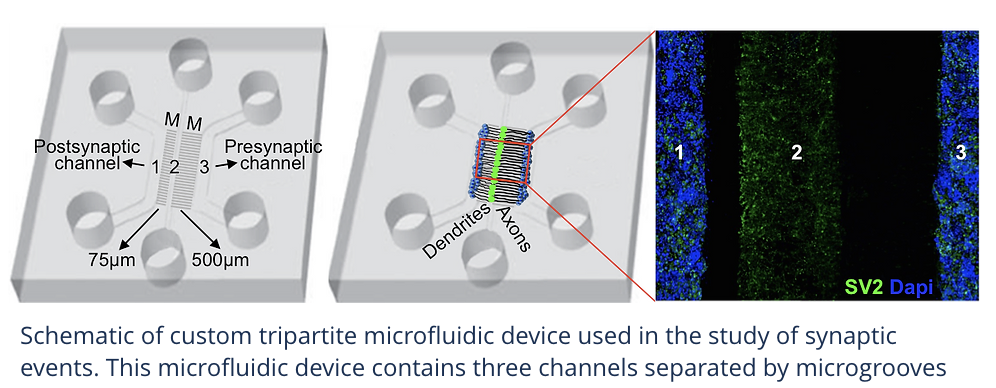
Research
Emerging data implicates a role for astrocyte dysfunction in neurodevelopmental and neuropsychiatric diseases. To study astrocyte pathology in ASD and Schizophrenia (SCZ), we combine patient iPSC-derived in vitro models with cell transplantation techniques to generate humanized mouse models. This enables us to assess synaptic plasticity and behavioral outcomes derived from ASD or SCZ astrocytes. Similarly, we also use organoids to 1) study early developmental deficits in neuropsychiatric diseases and 2) determine signatures of narcotic and neuropsychiatric risk factors in developing human cortices. In our most recent study, we strategically combined stem cell culturing with transplantation techniques to determine disease specific properties inherent to ASD derived astrocytes. We demonstrate that ASD astrocytes induce repetitive behavior as well as impair memory and long-term potentiation when transplanted into the healthy mouse brain. These in vivo phenotypes were accompanied by reduced neuronal network activity and spine density caused by ASD astrocytes in hippocampal neurons in vitro. Transplanted ASD astrocytes also exhibit exaggerated Ca2+ fluctuations in chimeric brains. Another major focus of our research asks how mRNA regulation contributes to synaptic plasticity and cognition. Our recent work established that local protein synthesis is regulated at the level of mRNA degradation in dendrites.
Figure 1

Figure 2

Figure 3

Current Projects:
- Autism
- Astrocyte functions
- RNA regulation
- Electrophysiology, Behavior
Bio
Dilek earned her PhD degree from the Ludwig Maximilian University in Germany. Her studies in Magdalena Gotz’s lab showed that neurogenesis in adult neural stem cells can be initiated upon inhibition of oligodendrogenesis. During her postdoctoral studies in the Jaffrey lab of WCM, she identified RNA degradation pathway NMD as a mechanism that regulates axon guidance in vivo. During this time, using Fragile X Syndrome (FXS) human embryonic stem cells she also discovered that the expanded repeats of the FMR1 mRNA interacts with the genomic DNA that then triggers FMR1 promoter repression in this disease.
Distinctions:
- 2009-2011: EMBO Postdoctoral Long-term Fellowship, European Molecular Biology Organization
- 2011-2014: Druckenmiller Postdoctoral Fellowship, New York Stem Cell Foundation
- 2014: Blavatnik Regional Postdoctoral Finalist Award, New York Academy of Sciences
- 2015: Tri-Institutional Breakout Award for Junior Investigators- Memorial Sloan Kettering
- 2016: Cancer Center, The Rockefeller University and Weill Cornell Medical College
- 2018: CJ Martin Overseas Biomedical Postdoc Mentorship, National Health and Medical Research Council, Australia
- 2023: Postdoc Mentorship, Leon Levy Foundation
